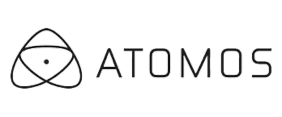The engineering job market is fiercely competitive, requiring job seekers to face numerous challenges in their search for the ideal position. Identifying and addressing these challenges is crucial for a successful job hunt. This article will delve into the top challenges faced by engineering job seekers and provide practical strategies for overcoming them.
1. Lack of Experience
Industry experience is a key factor that significantly impacts job seekers, especially those in the engineering field. Employers often seek candidates with hands-on experience, which can be challenging for recent graduates or professionals transitioning to a new industry. However, there are various ways to gain experience and enhance one’s employability.
Internships, co-op programs, and volunteering opportunities can provide invaluable experience for engineering job seekers. These opportunities not only allow candidates to develop technical skills but also help them forge professional connections and understand industry dynamics. Actively participating in relevant projects or competitions, such as hackathons, can also boost one’s resume and showcase one’s abilities.
When experience is limited, it’s essential to highlight transferable skills and relevant coursework on one’s resume. For instance, demonstrating strong problem-solving abilities, teamwork, and project management skills can prove advantageous. Similarly, showcasing coursework that aligns with job requirements can bridge the experience gap and demonstrate one’s readiness for the role.
2. Competitive Job Market
The engineering job market’s competitiveness is driven by various factors such as an increasing number of graduates, rapid technological advancements, and a growing demand for skilled professionals. To stand out in this crowded market, job seekers must adopt effective strategies that showcase their unique qualities and skills.
Networking and personal branding are essential components of a successful job search strategy. Building a robust professional network can lead to referrals and job opportunities, while developing a strong personal brand ensures that candidates are easily recognizable and memorable to potential employers. Utilizing social media platforms, attending industry events, and joining relevant professional organizations can help job seekers expand their networks and enhance their personal brands.
Specialized recruitment agencies, such as RunTime Recruitment, play a vital role in connecting job seekers with niche opportunities. By understanding the specific requirements of both candidates and employers, these agencies can match job seekers with positions that align with their skills, experience, and career goals. Leveraging the expertise and resources of specialized recruitment agencies can significantly improve the chances of finding the right job in a competitive market.
3. Technical Interviews
Engineering job seekers often encounter technical interviews, which can be challenging due to their unique nature. These interviews typically assess candidates’ problem-solving abilities, technical knowledge, and communication skills. To succeed in technical interviews, job seekers must develop effective preparation strategies and hone their core competencies.
Preparing for technical interviews involves reviewing relevant concepts, practicing coding problems, and familiarizing oneself with potential interview questions. Utilizing resources such as online tutorials, coding practice platforms, and interview guides can help candidates build confidence and improve their technical skills. Additionally, conducting mock interviews with friends or mentors can provide invaluable feedback and help identify areas for improvement.
Problem-solving and communication skills are crucial for excelling in technical interviews. Candidates must demonstrate their ability to analyze problems, devise solutions, and articulate their thought processes clearly. Practicing these skills regularly, both individually and in group settings, can significantly enhance a candidate’s performance during technical interviews and increase their chances of securing the desired job.
4. Coding Challenges
Coding challenges are a prevalent aspect of the engineering hiring process, particularly for software development roles. These challenges allow employers to evaluate candidates’ technical skills and problem-solving abilities. To excel in coding challenges, job seekers must effectively prepare and utilize available resources to improve their coding skills.
When preparing for coding challenges, it’s essential to develop a structured approach to problem-solving and practice a variety of coding problems. Familiarizing oneself with common algorithms, data structures, and programming languages can prove beneficial in tackling these challenges. Time management is also crucial, as candidates must often complete challenges within a limited timeframe. Creating a personal library of reusable code snippets and understanding the problem statement thoroughly can help job seekers save time and avoid mistakes.
Several resources are available for practicing coding challenges and enhancing one’s coding skills. Online platforms, such as LeetCode, HackerRank, and CodeSignal, offer a vast array of coding problems and competitions that can help job seekers refine their skills and familiarize themselves with common coding challenges. Additionally, engaging with coding communities and seeking guidance from experienced professionals can provide valuable insights and support throughout the preparation process.
5. Communication Skills
Strong communication skills are crucial in engineering roles, as engineers frequently collaborate with team members, present ideas, and explain technical concepts to non-technical stakeholders. Engineering job seekers often face communication challenges, such as effectively conveying their thought processes during interviews or adapting their communication style to different audiences.
To overcome these challenges, job seekers should focus on improving their verbal, written, and interpersonal communication skills. Practicing public speaking, engaging in active listening, and participating in group discussions can help develop these skills. Additionally, job seekers can demonstrate their communication abilities by providing examples of successful team projects, presenting complex ideas in a clear and concise manner, and showcasing their ability to adapt to various communication styles.
During the job search process, showcasing strong communication skills can be achieved through well-crafted resumes, cover letters, and LinkedIn profiles. In interviews, job seekers should practice articulating their thoughts clearly, ask thoughtful questions, and convey their enthusiasm for the role. By refining their communication skills and effectively showcasing them throughout the job search process, engineering job seekers can stand out from the competition and increase their chances of success.
6. Cultural Fit
Cultural fit plays a significant role in the engineering job market, as organizations seek candidates who align with their values, work style, and overall mission. Researching and assessing company culture during the job search can help job seekers identify potential employers that match their preferences and work environment needs.
Job seekers can research company culture by exploring employer websites, reading employee reviews on platforms like Glassdoor, and engaging with company representatives on social media. Attending industry events and connecting with current or former employees can also provide valuable insights into a company’s culture and work environment. Assessing company culture is essential in determining whether a role would be a good fit, both professionally and personally.
Demonstrating cultural fit during interviews and networking events involves showcasing one’s alignment with the company’s values, work style, and mission. This can be achieved by sharing relevant experiences, discussing personal values, and highlighting examples of successful collaboration within similar work environments. By effectively demonstrating cultural fit, engineering job seekers can increase their chances of securing a position that aligns with their preferences and long-term career goals.
7. Salary Negotiation
Effective salary negotiation is crucial in securing competitive compensation packages for engineering job seekers. However, negotiating salary can be challenging, as candidates often face uncertainties about market rates, their worth, and the potential risk of losing a job offer due to negotiation.
Common salary negotiation challenges faced by engineering job seekers include lack of information about industry standards, difficulty determining one’s worth, and concerns about appearing ungrateful or greedy. Overcoming these challenges requires research, preparation, and confidence in one’s value as a professional.
Strategies for effective salary negotiation include researching market rates for similar positions in the industry and region, assessing one’s skills and experience to determine personal worth, and preparing a clear rationale for the desired salary.
Additionally, practicing negotiation techniques and being open to discussing other benefits, such as flexible work hours or professional development opportunities, can help job seekers reach a mutually agreeable compensation package. By employing these strategies, engineering job seekers can enhance their chances of securing a competitive salary that reflects their skills and experience.
8. Relocation Issues
Relocation can significantly impact engineering job seekers, particularly in specialized fields where job opportunities may be concentrated in specific geographic areas. Addressing relocation concerns during the job search and interview process is essential to ensure a smooth transition and make informed career decisions.
When exploring job opportunities in new locations, job seekers should be transparent about their relocation preferences and potential concerns. Communicating with potential employers about relocation requirements can help job seekers gauge the level of support and resources available to ease the transition. Additionally, discussing relocation concerns during interviews can provide valuable insights into the company’s expectations and potential relocation assistance.
Evaluating relocation decisions requires a thorough assessment of various factors such as cost of living, quality of life, professional growth opportunities, and personal preferences. Job seekers should conduct research on housing costs, transportation options, local amenities, and community resources to make informed decisions about relocating. By carefully weighing these factors, engineering job seekers can determine if relocation is the right choice for their careers and personal lives.
9. Visa and Immigration
International engineering job seekers often face challenges related to visa and immigration requirements, which can significantly impact their job search process. Navigating these complexities requires knowledge of immigration policies, employer requirements, and available resources.
Job seekers can navigate the visa and immigration process by conducting thorough research on visa types, eligibility criteria, and application procedures. Understanding the nuances of the process can help job seekers make informed decisions and avoid potential pitfalls. Additionally, maintaining open communication with potential employers about visa requirements can clarify expectations and facilitate a smooth hiring process.
Resources such as government websites, immigration forums, and professional networks can provide insights into employer requirements and visa sponsorship opportunities. Utilizing these resources can help international engineering job seekers identify companies willing to sponsor visas and navigate the complexities of the visa and immigration process. By being proactive and knowledgeable about visa and immigration requirements, international job seekers can enhance their chances of securing employment in their desired location.
10. Continuous Learning
Continuous learning is essential in the rapidly evolving engineering field, as it enables professionals to stay current with industry advancements and emerging technologies. Adopting a proactive approach to learning can enhance one’s employability and open up new career opportunities.
Staying current with industry advancements requires a commitment to regularly updating one’s knowledge and skills. Following relevant news sources, attending conferences and workshops, and engaging in online forums can help professionals stay informed about the latest trends and developments in their field. Additionally, learning new programming languages, tools, and methodologies can provide a competitive edge in the job market.
Resources for professional development include online courses, certifications, and professional organizations. Platforms such as Coursera, Udacity, and edX offer a wide range of courses and certifications tailored to the engineering field. Professional organizations, such as IEEE and ASME, provide networking opportunities, industry insights, and access to exclusive events and resources. By leveraging these resources, engineering job seekers can continually enhance their skills and knowledge, ensuring they remain competitive and relevant in their chosen field.
11. Overqualification
Overqualified engineering job seekers may face challenges in securing suitable positions, as employers may perceive them as being too experienced or costly for the role. Addressing concerns related to overqualification during the job search process is crucial to ensure a successful outcome.
Job seekers can tackle concerns related to overqualification by focusing on the relevant skills and experience they bring to the table and demonstrating their adaptability and willingness to learn. Tailoring one’s resume and cover letter to highlight the most relevant qualifications for each position can help address potential concerns from employers. Furthermore, being transparent about one’s expectations and motivations during interviews can help dispel misconceptions about being overqualified.
Overqualification can be leveraged to one’s advantage in the job market by showcasing the additional value that extensive experience brings to a role. Demonstrating leadership abilities, project management skills, and industry knowledge can position overqualified candidates as assets to potential employers. By effectively addressing concerns related to overqualification and highlighting the benefits of their experience, engineering job seekers can increase their chances of securing a suitable position in the job market.
12. Age Discrimination
Age discrimination is an unfortunate reality in the engineering job market, as some employers may favor younger candidates due to misconceptions about older professionals’ adaptability and technical prowess. Combating age discrimination during the job search process is essential to ensure fair opportunities for all candidates.
To tackle age discrimination, job seekers should focus on showcasing their skills, experience, and adaptability rather than emphasizing their age. Adopting a modern resume format, staying current with industry trends and technologies, and demonstrating a willingness to learn can help counteract potential age-related biases. Furthermore, networking with professionals of various age groups and engaging with age-diverse professional organizations can expand one’s job search opportunities and break down age-related barriers.
Highlighting the value of experience and wisdom in engineering roles can help job seekers emphasize their unique strengths. Experienced professionals can showcase their problem-solving skills, industry knowledge, and leadership abilities to demonstrate the benefits they bring to a position. By emphasizing the value of their experience and addressing potential age-related concerns, engineering job seekers can increase their chances of success in the job market, regardless of their age.
13. Unrealistic Job Descriptions
Unrealistic job descriptions are prevalent in the engineering field, as employers often list an extensive array of skills and qualifications that may exceed the requirements of the role. Navigating these job descriptions during the job search process is crucial to ensure that candidates focus on suitable opportunities.
Identifying and addressing unrealistic job descriptions involves critically evaluating the listed requirements and determining their relevance to the role. Job seekers can research similar positions and consult industry professionals to gain a better understanding of realistic expectations for a given role. Additionally, focusing on the most critical qualifications and skills in the job description can help candidates determine their suitability for the position.
Effectively communicating one’s skills and qualifications in relation to job requirements is crucial when dealing with unrealistic job descriptions. Job seekers should tailor their resumes and cover letters to highlight their relevant skills, experience, and accomplishments. During interviews, candidates can demonstrate their ability to meet the core requirements of the role while showcasing their adaptability and willingness to learn new skills. By proactively addressing unrealistic job descriptions and effectively communicating their value, engineering job seekers can increase their chances of success in the job market.
14. Networking
Networking plays a critical role in the engineering job search process, as it allows job seekers to connect with industry professionals, uncover hidden job opportunities, and gain valuable insights into the job market. However, engineering job seekers often face networking challenges, such as building a diverse professional network and effectively leveraging connections.
Common networking challenges include finding networking events, establishing meaningful connections, and maintaining relationships over time. Overcoming these challenges requires a proactive approach and a genuine interest in connecting with others on a personal and professional level.
Strategies for building and leveraging a strong professional network include attending industry conferences, workshops, and meetups; participating in online forums and social media groups; and joining relevant professional organizations. Job seekers should also focus on maintaining relationships with existing connections through regular communication and by offering support and assistance when needed. By developing a robust professional network, engineering job seekers can significantly enhance their job search success and open up new career opportunities.
15. Location Constraints
Location constraints can significantly impact engineering job seekers, especially in specialized fields where opportunities may be concentrated in specific geographic areas. Addressing location constraints during the job search and interview process is essential to ensure a successful outcome and explore various career options.
Job seekers can address location constraints by researching potential employers and job opportunities in their desired locations and being transparent about their location preferences during interviews. Communicating with potential employers about relocation requirements and exploring support resources available can help job seekers understand the feasibility of relocating for a particular role.
Considering remote work and freelance opportunities can also help overcome location constraints, as these options offer increased flexibility and access to a broader range of job opportunities. Job seekers can explore remote work platforms, freelance job boards, and professional networks to identify suitable remote and freelance positions. By adopting a flexible approach to location and exploring alternative work arrangements, engineering job seekers can expand their career options and overcome location constraints in their job search.
16. Company Rejections
Company rejections are an inevitable reality in the competitive engineering job market. Learning to handle these rejections gracefully and using them as an opportunity for growth can help job seekers stay motivated and focused on their goals.
Handling company rejections involves maintaining a positive attitude, seeking feedback, and identifying areas for improvement. Job seekers should view rejections as valuable learning experiences and use the feedback to refine their job search strategies, improve their skills, and better prepare for future opportunities. It’s essential to remember that rejection is a natural part of the job search process and should not be taken personally.
Maintaining motivation and perseverance throughout the job search is crucial for long-term success. Job seekers should set realistic goals, celebrate small victories, and continually invest in their personal and professional development. Building a support network of friends, family, and fellow professionals can also help job seekers stay motivated and navigate the challenges of the job search process. By adopting a resilient mindset and learning from company rejections, engineering job seekers can increase their chances of success in the competitive job market.
17. Technical Skills Gap
Engineering job seekers with gaps in their technical skills may face challenges in securing suitable positions. Identifying and addressing these gaps during the job search process can help candidates improve their employability and showcase their competencies to potential employers.
To identify and address technical skills gaps, job seekers should first assess their current skillset and compare it to the requirements of their target roles. This comparison can help pinpoint areas in need of improvement. Job seekers can then develop a plan to acquire or strengthen the necessary skills through online courses, certifications, or hands-on projects.
Improving and showcasing technical skills to potential employers involves continuous learning and effectively communicating one’s abilities. Job seekers should highlight their relevant skills, certifications, and accomplishments on their resume, cover letter, and LinkedIn profile.
Additionally, candidates can demonstrate their technical prowess during interviews by discussing specific projects or challenges they have successfully overcome. By adopting a proactive approach to bridging the technical skills gap, engineering job seekers can increase their chances of success in the competitive job market.
Conclusion
In summary, engineering job seekers face numerous challenges, such as the competitive job market, technical interviews, and location constraints, among others. However, by adopting effective strategies such as continuous learning, networking, and showcasing relevant skills, job seekers can overcome these challenges and find success in their careers.
It is crucial to remain persistent and adaptable throughout the job search process, continually enhancing one’s skillset and exploring various opportunities. By leveraging the expertise and resources of specialized recruitment agencies like RunTime Recruitment, job seekers can receive the support and guidance necessary to navigate the competitive engineering job market and secure their ideal position.
Make Your Dream Job a Reality with RunTime Recruitment
Our expert team of engineers-turned-recruiters offers in-depth knowledge of technical recruiting in the engineering industry and is dedicated to providing you with invaluable guidance and support throughout your job search journey.
If you’re a highly skilled engineer seeking new opportunities, explore job vacancies on RunTime Recruitment’s job site.









